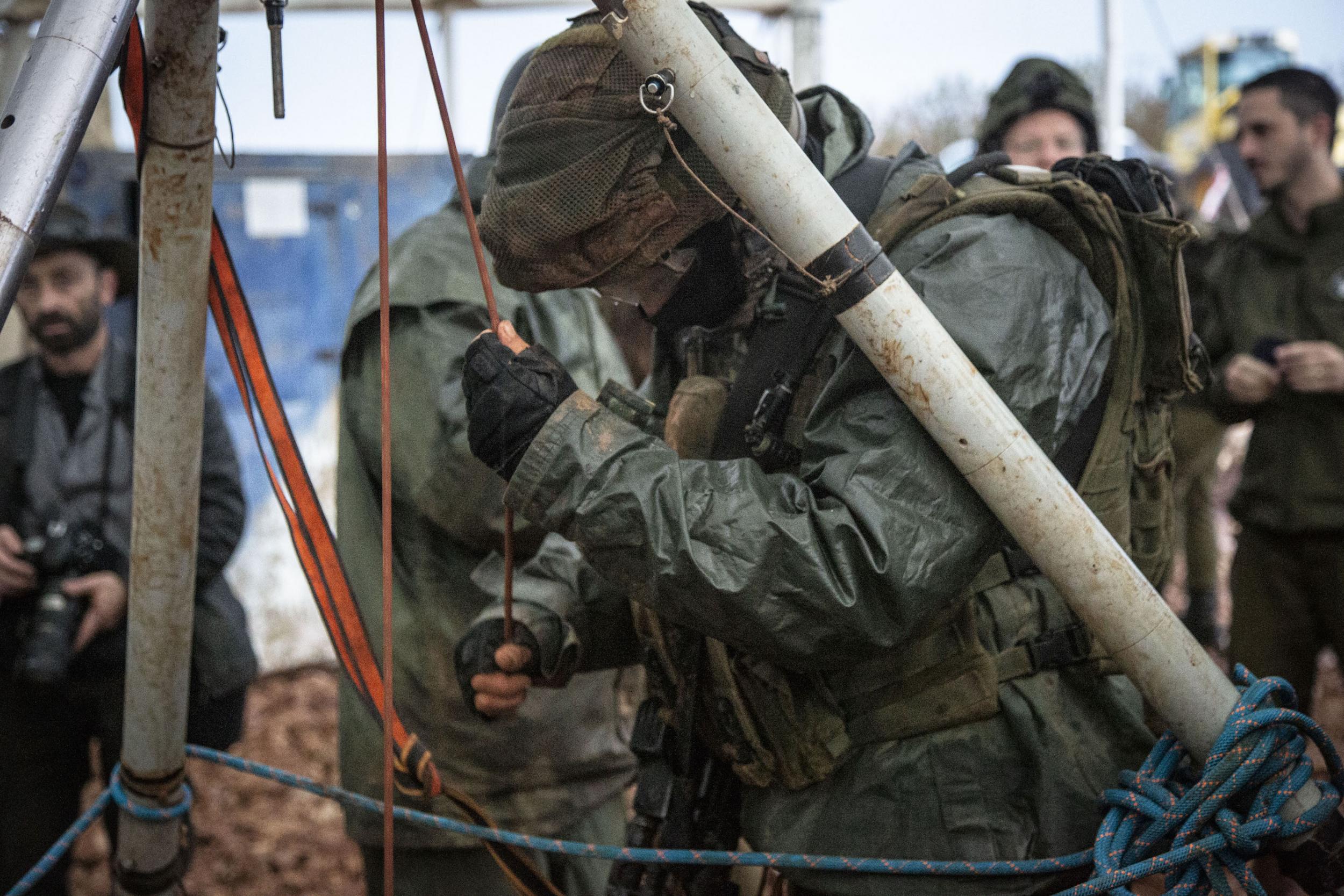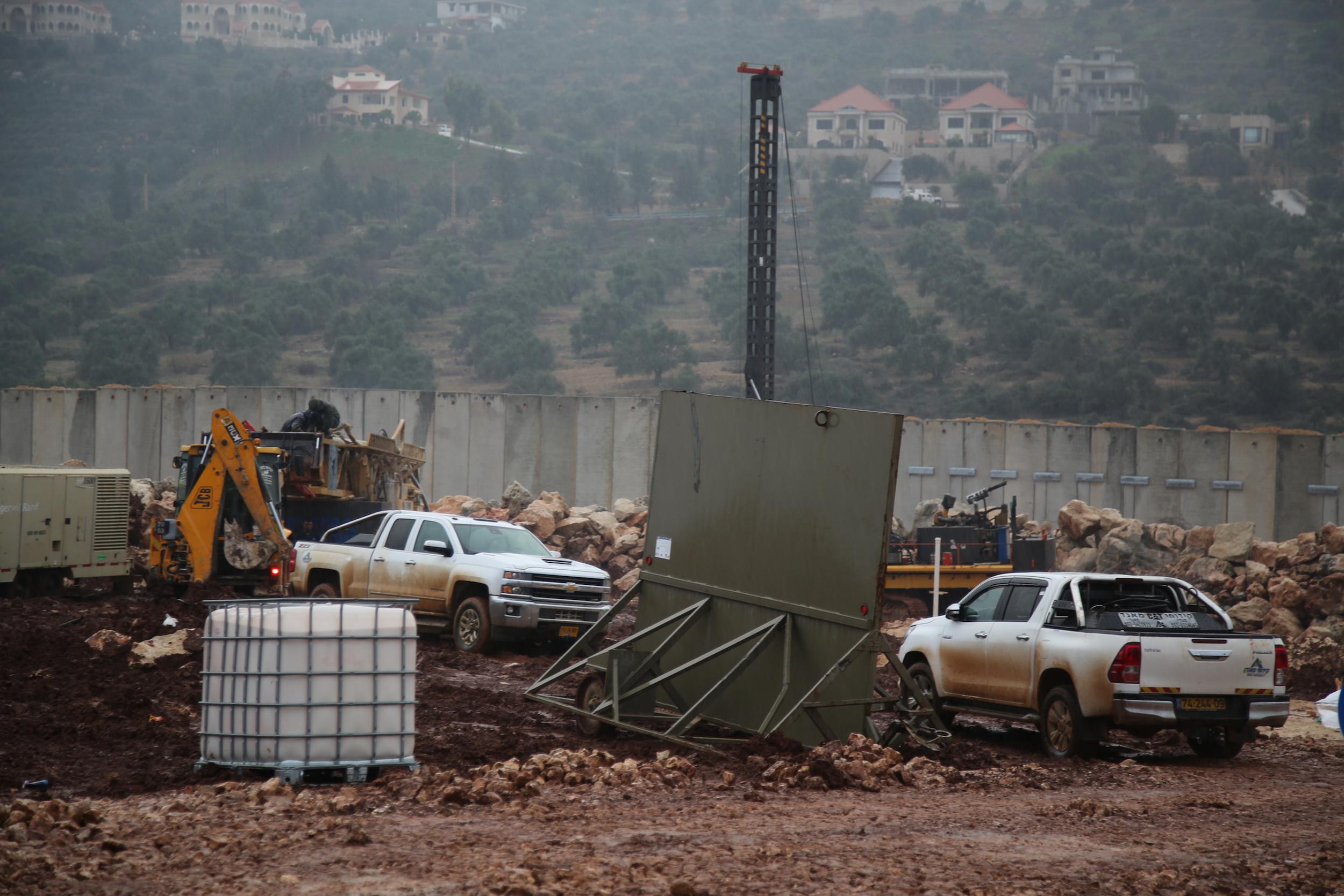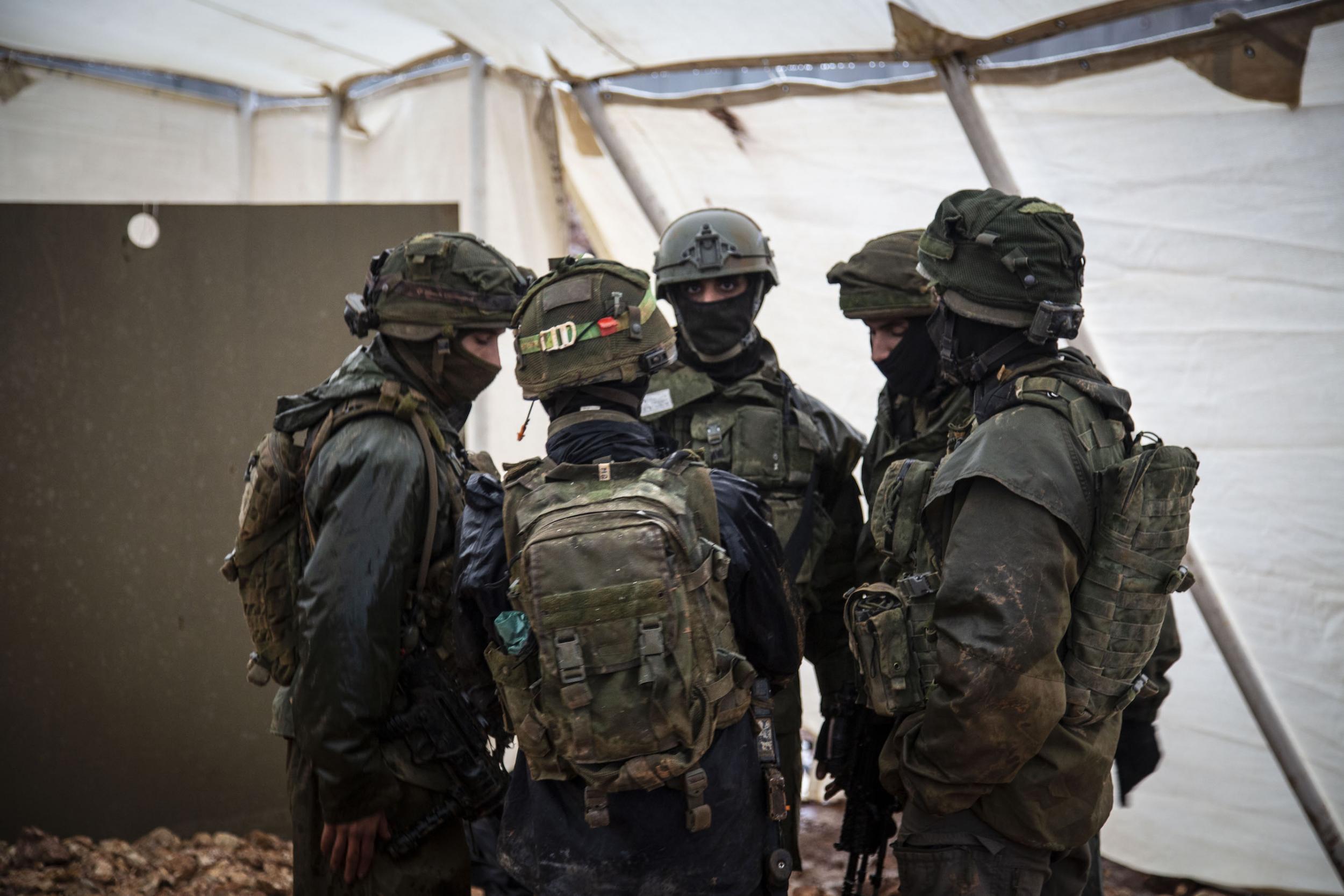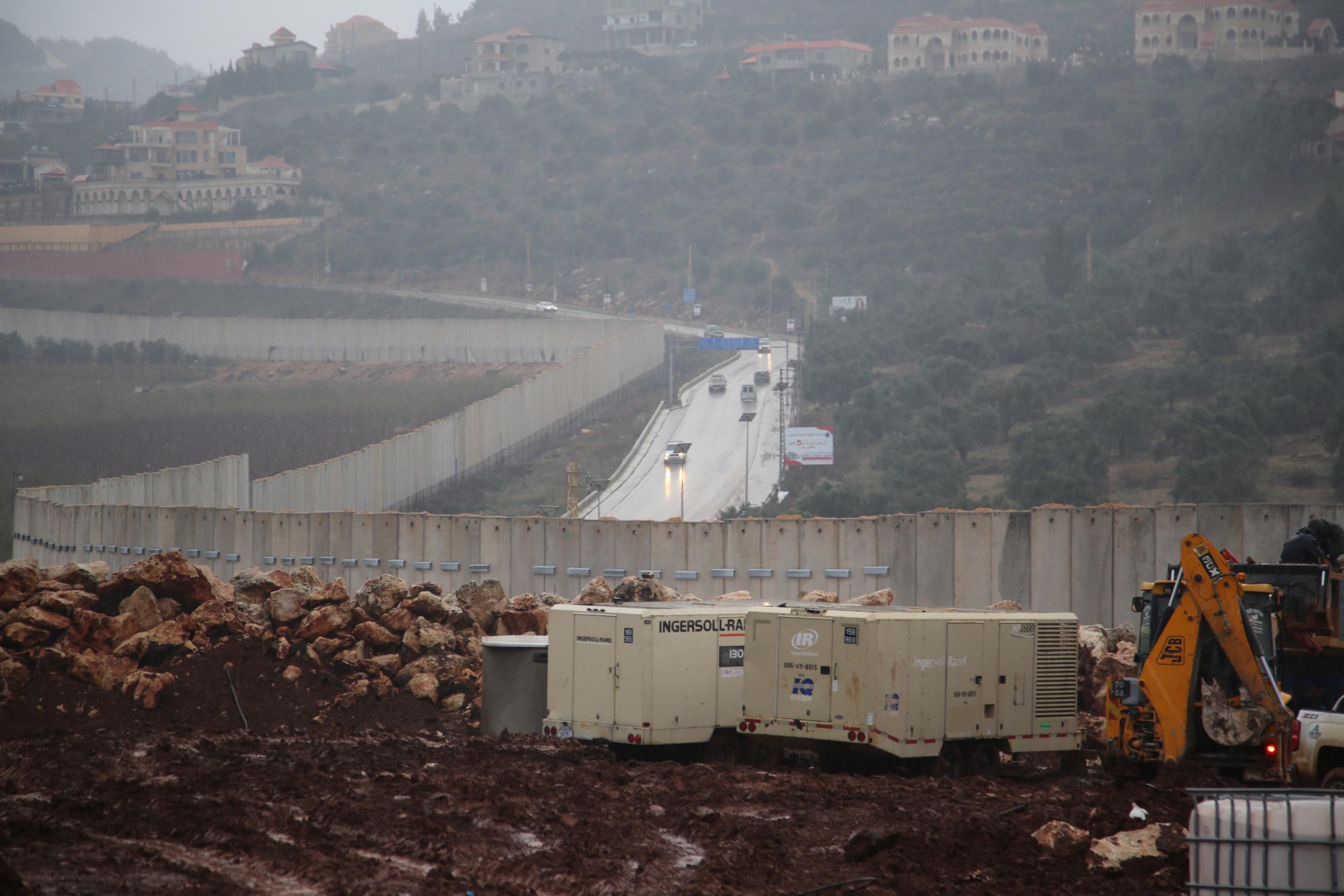Israel's Benjamin Netanyahu accuses Lebanese government of 'colluding' with Hezbollah
The president called on the UN and Lebanon to take action against Hezbollah after discovery of tunnels dug under border
Israeli prime minister Benjamin Netanyahu has accused the Lebanese government of “colluding” with Hezbollah and urged the United Nations to press for greater sanctions against the militant group, as the Israeli army said they were poised to unearth more tunnels dug under the border between the two countries.
Israel launched an operation earlier this month to “thwart and neutralise” Hezbollah's passageways, which it said the militants intended to use to launch an attack on civilians and isolate areas of the Galilee.
The discovery of at least four tunnels has raised tensions over the border, which has not seen much violence since the last devastating flare-up in 2006.
Ahead of a UN Security Council meeting to address the tunnels on Wednesday, Mr Netanyahu said the Lebanese government “is doing nothing at best, it is colluding at worse”.
He told the Israeli parliament, the Knesset: “The people of Lebanon have to understand that Hezbollah is putting them in jeopardy. And we expect Lebanon to take action to protest against this, and not to give into this.”
The Israeli army said it had so far discovered four tunnels running from Lebanon into Israel, and has begun destroying those on its side of the border.
On Wednesday, at the site of the first tunnel discovered, in the border town of Metula, a senior army official said the operation "had no time limit" and they believed there were "several more" passageways which would soon be unearthed.
"This has set Hezbollah back several years, the impact on them is big," said the commander, in front of soldiers who were busy at work drilling dozens of holes and using radar to look for further passages.
"This operation does not have a time limit. We are going to find each and every tunnel which is a risk to civilians in the northern area," he added.
The UN peacekeeping force in Lebanon, known as UNIFIL, said it had inspected the sites and confirmed that two of the tunnels cross the Blue Line, the demarcation that separates the two countries.
It said the tunnels were “a matter of serious concern” and constituted a breach of the UN resolution that ended the 2006 war.

In his most forceful statement yet on the matter, Mr Netanyahu said: “We are holding Lebanon accountable.”
He continued: “We think the international community should hold Iran, Hezbollah and Lebanon accountable and should act accordingly. Because what you are seeing is not merely a grave violation of our security but a grave violation of any nation’s security.”
He added that Hezbollah was using “every third house” in villages in southern Lebanon for “aggressive purposes”. He urged the UN security council to designate Hezbollah as a terrorist organisation "in its entirety" and press for heightened sanctions.
At the Israeli border with Lebanon, Lt. Col, Jonathan Conricus, a spokesman for the Israeli army, echoed Mr Netanyahu’s words that the Lebanese authorities had effectively colluded with Hezbollah, which he said also had an influence on UNIFIL.

“What we see on [an] intelligence level is Hezbollah has a profound influence on Lebanese armed forces. They effectively control south Lebanon. The landlord in southern Lebanon is Hezbollah,” he told The Independent.
“Hezbollah also has a direct influence on UNIFIL. Every time UNIFIL want to patrol [the area] they have to coordinate with the Lebanese armed forces who then ask Hezbollah.”
If there is anything “sensitive” in the area, Hezbollah is able to block further investigations, he claimed.
The administration of US president Donald Trump has taken a tough stance against Hezbollah and its main backer, Iran. But it continues to provide support to the Lebanese army, which it sees as a bulwark against Hezbollah’s domination of the country. The US has provided some $1.7bn of aid and equipment to the Lebanese military since 2007.

Lebanon has long complained of almost daily flights over the country by Israeli jets. It says this is also a breach of the UN resolution. The Lebanese president, Michel Aoun, said last week that he “took this issue seriously”.
He said: “We also do not have aggressive intentions. We are ready to remove the causes of the dispute, but after we obtain a final report and we set out the matters that need to be dealt with.”
Mr Netanyahu dismissed the concerns, saying there was a "very big difference" between Israel's actions and the threat from the border tunnels.
He later addressed reports that the US would withdraw its troops from Syria after President Trump said that Isis had been defeated there.
Mr Netanyahu said he would "study" Washington's decision and its implications for Israel, which is concerned about both Iranian and Hezbollah presence in war-ravaged Syria.
"In any case, we will make sure to maintain Israel's security and protect ourselves from this arena," the premier added.

Spokesman Lt. Col. Conricus said that security concerns across Israel's "northern front" were behind the decision to launch the tunnel operation this month, and had also deterred the army from launching a full-scale operation to the south in Gaza.
At the site of the Hezbollah tunnels, Israeli army officials said their operation began four years ago, when Hezbollah leader Sayyed Hassan Nasrallah vowed to invade the Galilee and they started noticing unusual behaviour in areas near the border.
Commanders said the tunnel at Metula stretched 40 metres into Israel and originated in a nearby cement factory in the Lebanese town of Kafr Kela, which had ceased operations in 2014.
Israel has threatened to take military action against Hezbollah several times since the last devastating round of conflict in 2006. That battle was sparked by a cross-border raid by Hezbollah to kidnap two Israeli soldiers. The group hoped to use them as bargaining chips in order to pressure Israel to release Lebanese prisoners.

Instead, the Israelis responded with an attack that led to the deaths of more than 1,000 Lebanese civilians. Forty-four Israeli civilians were also killed by Hezbollah rockets.
Hezbollah was founded in the early 1980s with the support of Iran, and spent much of its early existence fighting Israeli troops occupying southern Lebanon.
Israel invaded Lebanon several times during the country’s 1975-1990 civil war, and occupied much of the south of the country for 22 years.
During the occupation, Hezbollah dug extensive tunnel networks across the south of the country. It used them to launch ambushes and move around without being seen by Israeli jets.
Join our commenting forum
Join thought-provoking conversations, follow other Independent readers and see their replies
Comments
Bookmark popover
Removed from bookmarks